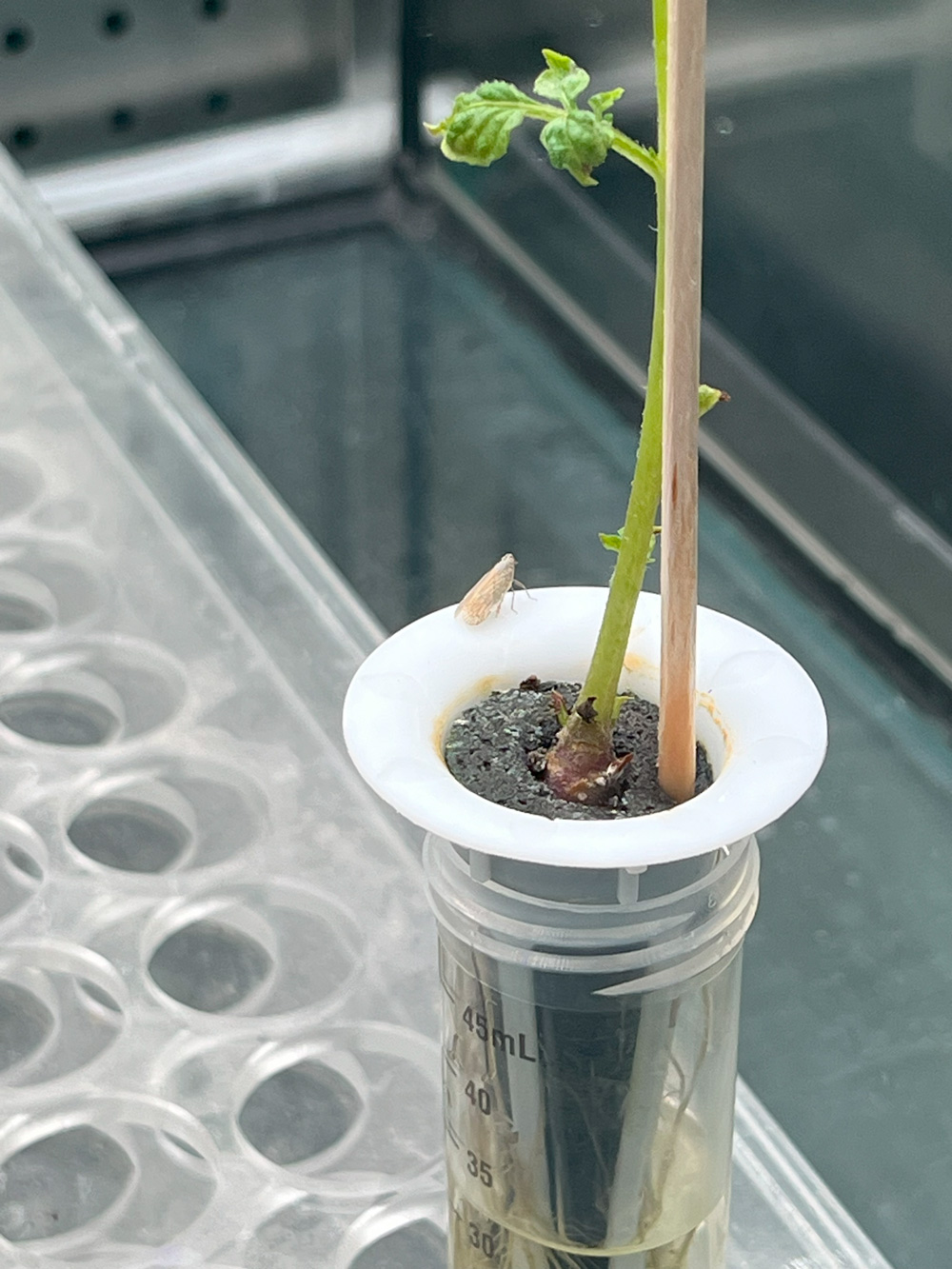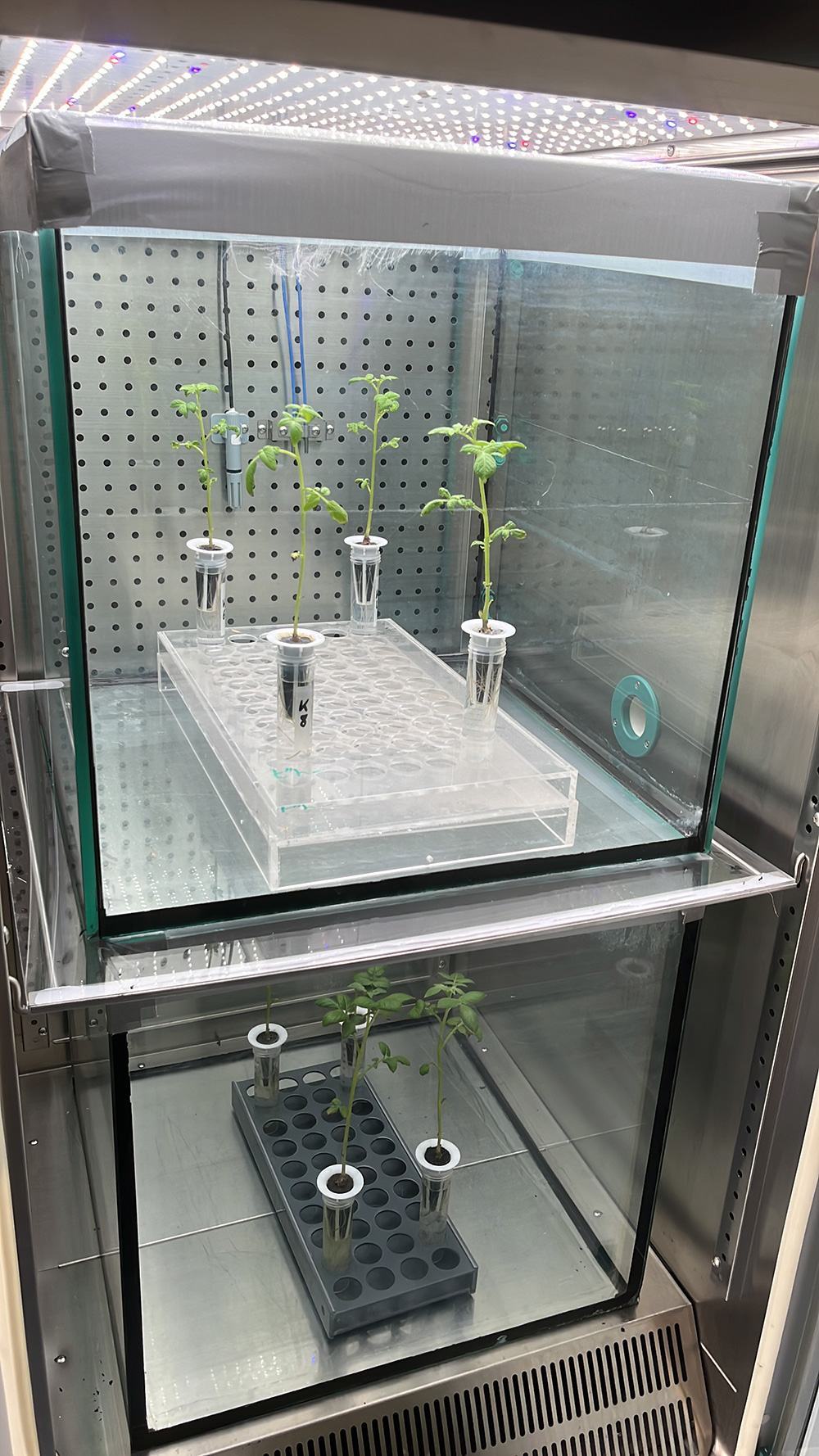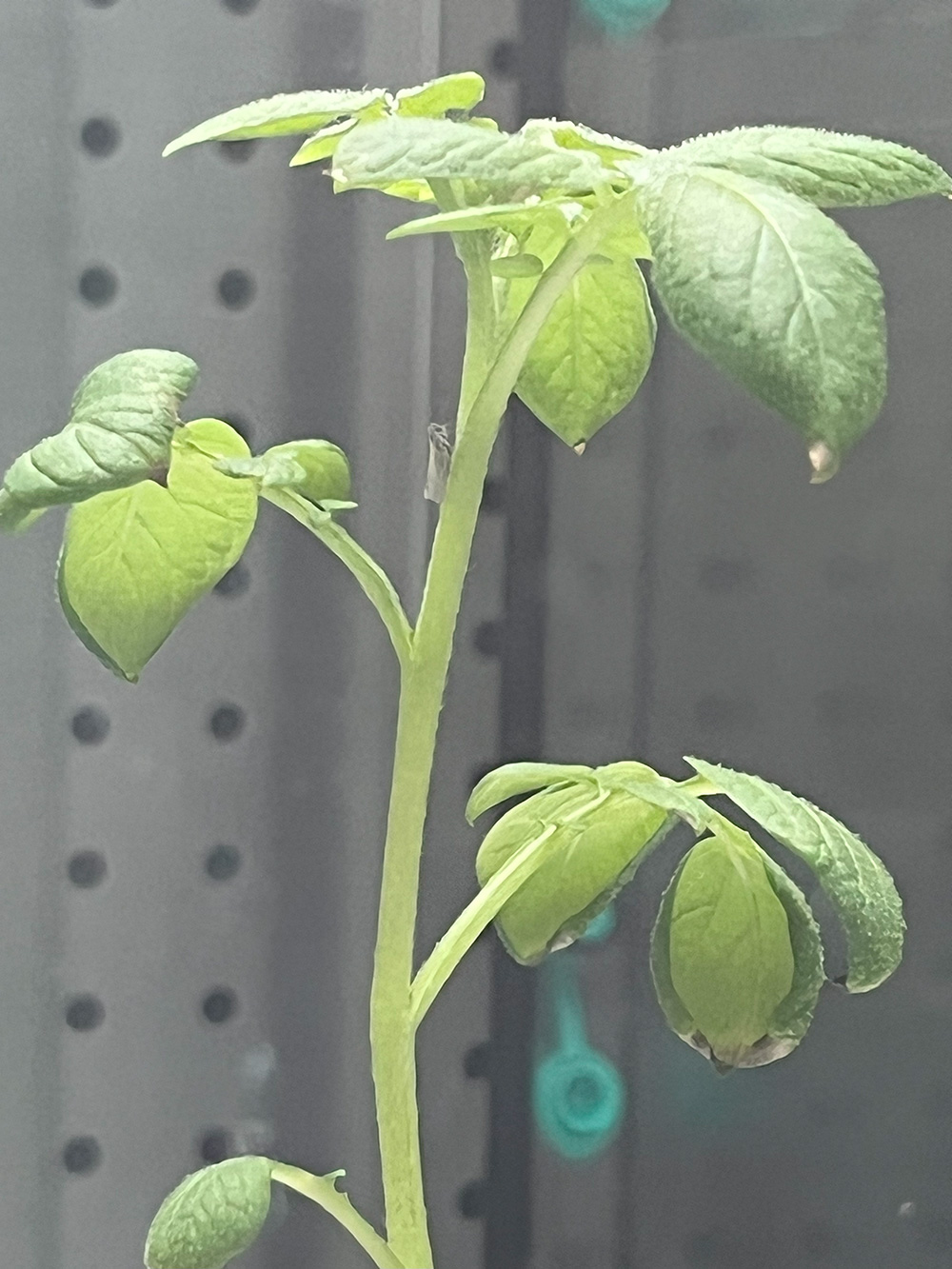The phytophatogenic bacteria Candidatus phytoplasma and Candidatus arsenophonus, which are transmitted by the reed glasswing cicada, pose an ever-increasing threat to agriculture. For sugar beet cultivation in particular, SBR (Syndrome Basses Richesses) and Stolbur (commonly known as rubber beet), which are caused by these harmful organisms, pose an immense challenge to economically viable cultivation.
In 2025, we established the PCR detection of both pathogens and carried out the first successful transmission trials with reed glasswing cicadas caught in the field. For this purpose, we have adapted our climate chambers so that the cicadas can be kept for a period of up to 7 days. Our housing system, in conjunction with the camera technology established in the chambers, enables targeted monitoring and analysis of the sucking behavior and the recording of approaches to individual plants.
Of course, PCR analysis can also be applied directly to plant material obtained from the field.



